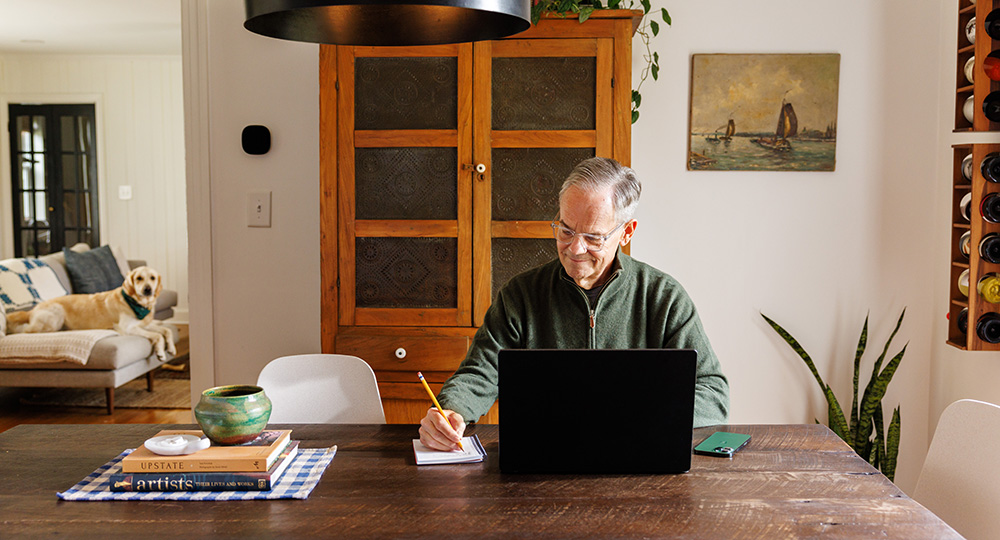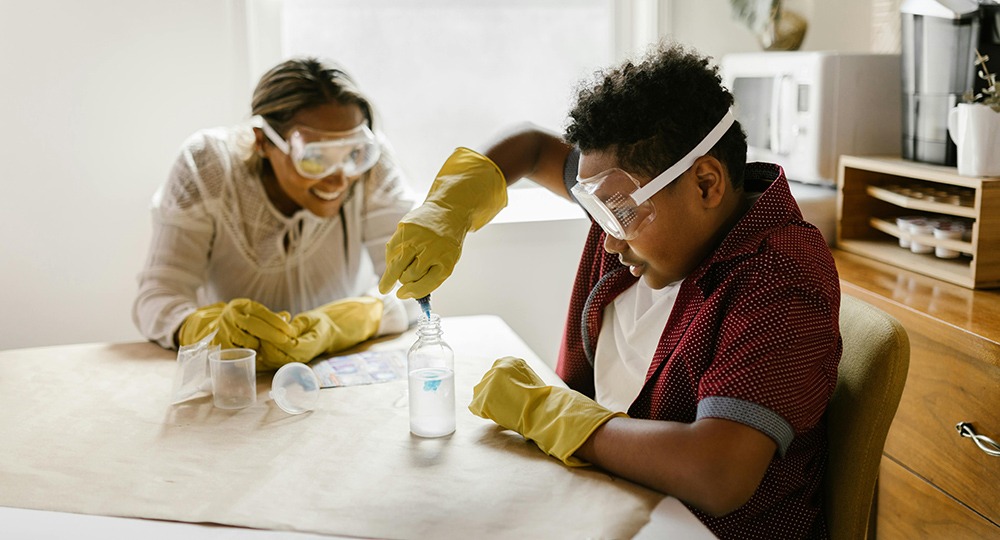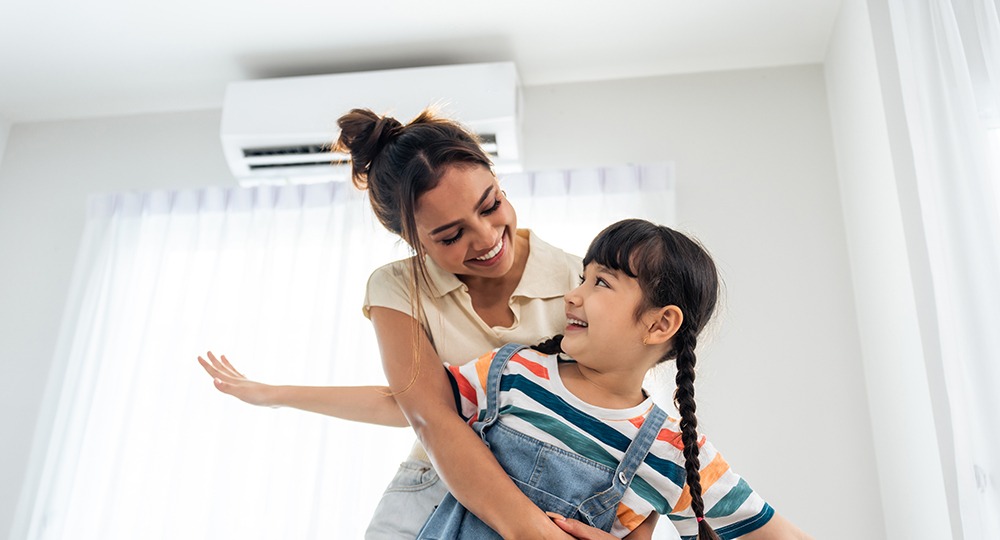15 ways to save energy at home when you’re on Spring Break

Whether your spring break is taking you somewhere warm and toasty or cold and snowy, don’t miss an opportunity to save energy at home while you’re away. A little bit of quick and easy at-home prep before you leave can mean a lower energy bill when you return. And a few extra bucks in your bank account might just be the best vacation souvenir of all. We’ve rounded up 15 ways to power down your home so you can fully relax and unwind this spring break.
Give your HVAC system a break, too.
Hey, maybe your HVAC system would love a little spring break, too? Since heating and cooling your home can make up as much as 55% of your total household electricity use, it’s also a great place to find energy savings. Here are a few things you can do to let your HVAC get some R&R.
1. Set your thermostat to 55° F in the winter or 85° F in the summer.
The weather in the Southeast is unpredictable. When you leave for spring break it could be 30° F outside or it could be 70° F. It’s anybody’s guess! That being said, adjust your thermostat accordingly. When it’s warmer outside, set your thermostat to 85° F. For every degree above 72° F you can save up to 3% on your energy bill. Now if it’s cold out still, set your thermostat to 55° F. Not only will you save a ton of energy, but you can also rest easy knowing that heat will still flow and your pipes will be protected during a freeze. If you’ve got a smart thermostat, use vacation mode to set it and forget it.
Just remember, when you return home and want to recool or reheat the house, only set it to your desired temperature. Dropping the temperature as low or as high as it can go won’t make your HVAC system work faster, but it will make your system work harder for longer. Not only could that damage your system, but it will also drive up your energy bill.
2. Unplug space heaters.
If it’s still space heater season in your area by the time spring break rolls around, unplug those guys before you go. Space heaters are energy eaters, and even when they’re off, they’ll continue to use energy just by being plugged into an outlet. In general, whether you’ll be gone for eight hours or eight days, never leave a space heater on in an unoccupied home. It’s a fire hazard.
Keep your energy bill out of hot water.
3. Drop your water heater thermostat to its lowest set point.
If no one’s home, nobody needs hot water, right? Go ahead and give yourself some extra savings by turning your water heater thermostat down to its lowest setting. For older electric water heaters, look for a small plate on the front of the machine that unscrews. You’ll find the thermostat dial in there. If you have a newer, more energy efficient model, set the thermostat to vacation mode. For gas water heaters, you’ll want to check your user manual. It’s important to remember, however, that this might be a tip to skip if there’s a chance of freezing temperatures while you’re away.
Keep food fresh and frozen.
4. Set the refrigerator thermostat to 35° F–38° F and the freezer to 0° F–5° F.
If you’ve never checked your refrigerator and freezer thermostats (or if it’s been awhile), take 15 seconds to give them a quick glance. For optimal energy efficiency, set the refrigerator thermostat to 35° F–38° F and the freezer to 0° F–5° F. Maintain these temperature ranges year-round to keep food fresh, safe to consume and delicious. (Find more energy-saving tips and advice you can use all year.)

Stop vampire energy and give your electronics a breather.
While we don’t have advice on how to decrease kiddos’ screen time on spring break, we can at least tell you how to give your home a break from all the devices. Here’s the thing: If it’s plugged into an outlet, it’s using energy, even if it’s not technically “on.” We call this “vampire” energy, because it’s sucking up energy — and money — whether the device, machine, etc. is in use or not. So, before you head out of town, do a quick sweep for vampires first!
5. Unplug all small electronic devices, e.g., de/humidifiers, kitchen gadgets, printers.
6. Unplug all TVs, gaming consoles, entertainment devices, computers and laptops.
7. Unplug all power adapters and charging devices.
8. Unplug the microwave, toaster, coffee maker and appliances with an electronic clock.
Leave only necessary lights on.
9. Turn off indoor and outdoor lights.
While it’s not a bad idea to leave a light or two on when you’re away, you also don’t need to keep the house lit up like the Fourth of July! Keep a few strategic lights on but turn off the rest. If you have timers or light sensors, you can set those up, too, so that you only have certain lights on, at certain times.
Block out the sun.
10. Close all curtains, drapes and blinds.
This is another tip that only takes seconds to complete. While you’re going around the house searching for things to unplug, close curtains, drapes and blinds, too. By blocking out heat-producing sunlight, you can maintain a cooler temperature inside. If you’re traveling during warmer months, make sure to check out our tips for saving energy during the toastiest times of the year.
Don’t forget these miscellaneous items.
Keep the energy-saving shutdown going and knock out just a few more remaining things!
11. Turn off ceiling fans and personal fans.
12. Unplug the hot tub heater or drain/winterize hot tub.
13. Turn off or lower the swimming pool heater. (Leave the pump on.)
14. Unplug air conditioners if they’re not needed for humidity control.
15. Unplug landscaping water features if they’re not needed for aquatic life.
Come home to a lower energy bill with the Power Down Before You Go Out of Town Checklist.
Bring a little extra rest and relaxation to your next getaway when you use TVA EnergyRight’s Power Down Before You Go Out of Town Checklist. Enjoy the comfort of knowing you’re saving energy, saving money and maybe even fighting off an energy vampire or two!
Download the Power Down Before You Go Out of Town Checklist to get started.




